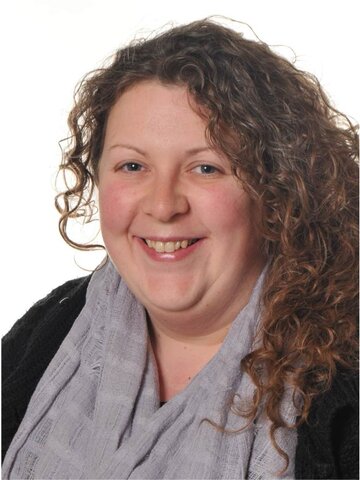Child protection and safeguarding procedures are of the upmost importance at Ivy House School. Child protection is defined as safeguarding and promoting the welfare of children by:
- Protecting children from maltreatment;
- Preventing impairment of children’s health or development;
- Ensuring children grow up in circumstances consistent with the provision of safe and effective care: and
- Taking action to enable all children to have the best outcomes.
Everyone working in, or for our school, shares an objective to help keep children and young people safe by contributing to:
- Providing a safe environment for children and young people to learn in education settings;
- Identifying children who may be in need of extra help, or are suffering or likely to suffer significant harm, and taking the appropriate action, working with other services as needed.
We will ensure that parents and our partner agencies are aware of our child protection policy by ensuring that it is displayed in school reception area/s, by raising awareness at initial meetings with parents of new pupils and at parent teacher meetings and ensuring that it is on the school website.
Ivy House also offer regular Safeguarding Supervision sessions for staff involved in child protection work. Supervision is a regular one-to-one meeting between the Supervisor and Supervisee in order to meet school, professional and personal objectives. The supervision process is a key part of the safeguarding management system and continuous professional development within the school. Good quality supervision helps to keep the focus on the child and maintains a degree of objectivity, whilst challenging fixed views where they may arise. It also tests and assesses the evidence for assessment and decisions and address the emotional impact of work on safeguarding leads. You can find out more about Safeguarding Supervision by reading the policy below.
Designated Safeguarding Leads

George Turner
Deputy DSL
Headteacher

Hannah Birks
Deputy DSL
Deputy Headteacher

Tara Gaskin
Deputy DSL
Pastoral and Behaviour Lead
.png)
Alise Clark
Designated Safeguarding Lead
Safeguarding & Pastoral Lead
You can contact a DSL by using the school's phone number, during normal opening hours (8:00am-5:00pm). Alternatively, you can send an email to safeguarding@ivy.set.org and we will endeavour to get back to you as soon as possible.
If you require a DSL during school holidays and out of term time, then you should send an email to the address above and include 'URGENT' in the subject line. Please note, that it may not be possible to respond on the same day.
What to do if you have concerns about a child?
If you believe that a child is at immediate risk and in need of protection then you should call the police on 999 immediately.
Alternatively, if you want advice from the police and the child is not in immediate need of protection, you can call them on 0845 123 33 33
Dedicated helpline for victims of abuse in schools | NSPCC
NSPCC have launched a dedicated helpline for children and young people who have experienced sexual harassment or abuse at school, and for worried adults and professionals that need support and guidance. You can call their advice line on 0800 136 663
Children's Social Care and the First Contact Team
You may want to discuss your concerns with a Social Care worker. The First Contact Team deals with all concerns about Children and Young People across the city. Members of the team will help you to talk about the concerns you may have for a child and decide what actions may be required to make a child safe.
You can contact the team during normal working days between 9am and 5pm on 01332 641172
At all other times concerns can be discussed with Careline, who can be contacted on 01332 956606
At Ivy House School, we support students, parents and carers with Online Safety.
Whilst we recognise that the internet is an amazing resource which enables children and young people to connect, communicate and be creative in a number of different ways, on a range of devices, life online for a child with SEND may pose additional challenges that require careful management and support. We have, therefore, devised a list below of useful websites and resources that will support you to keep your child safe whilst online.
National Online Safety - Parent Guides
These helpful guides are created by National Online Safety, we hope these will be informative and support you and your child to keep safe online. Over the next few weeks will be releasing a new parent guide for you to read through. We hope this enables you to keep you and your child safer online.
Useful Websites and Resources
The following websites offer support and advice to both young people and parents.

Childnet: Childnet is an International, a non-profit organisation working with others to help make the internet a great and safe place for children.
Thinkuknow: Thinkuknow is the education programme from NCA-CEOP, a UK organisation which protects children both online and offline.

Safer Internet: Safer Internet offers tips, advice, guides and resources to help keep your child safe online.

CEOP (Child Exploitation and Online Protection command): CEOP is an organisation in which you can report and gain advice on online abuse.
The NSPCC also offer a wide range of resources and advice for parents, these are as follows:
The NSPCC have worked in collaboration with O2, bringing together O2’s tech know-how and the NSPCC’s expertise in protecting children.
It can be hard to know how to talk to your child about online safety. From setting up parental controls to advice on sexting, online games and video apps, we can help you to understand the risks and keep your child safe.
Net Aware describes and reviews all the latest and most popular social networking sites, apps and games used by children and young people. It also gives the views of parents and children.
Net Aware is a great resource to inform parents and carers who want to know about:
- age suitability
- privacy settings
- appropriate content
- safety and security settings
- Supporting young people with SEND online
You can also get more advice and information on Cyber Bullying from the Department for Education's website by visiting the link below:
DfE Cyber Bullying Advice
Please contact school if you need further information or advice.